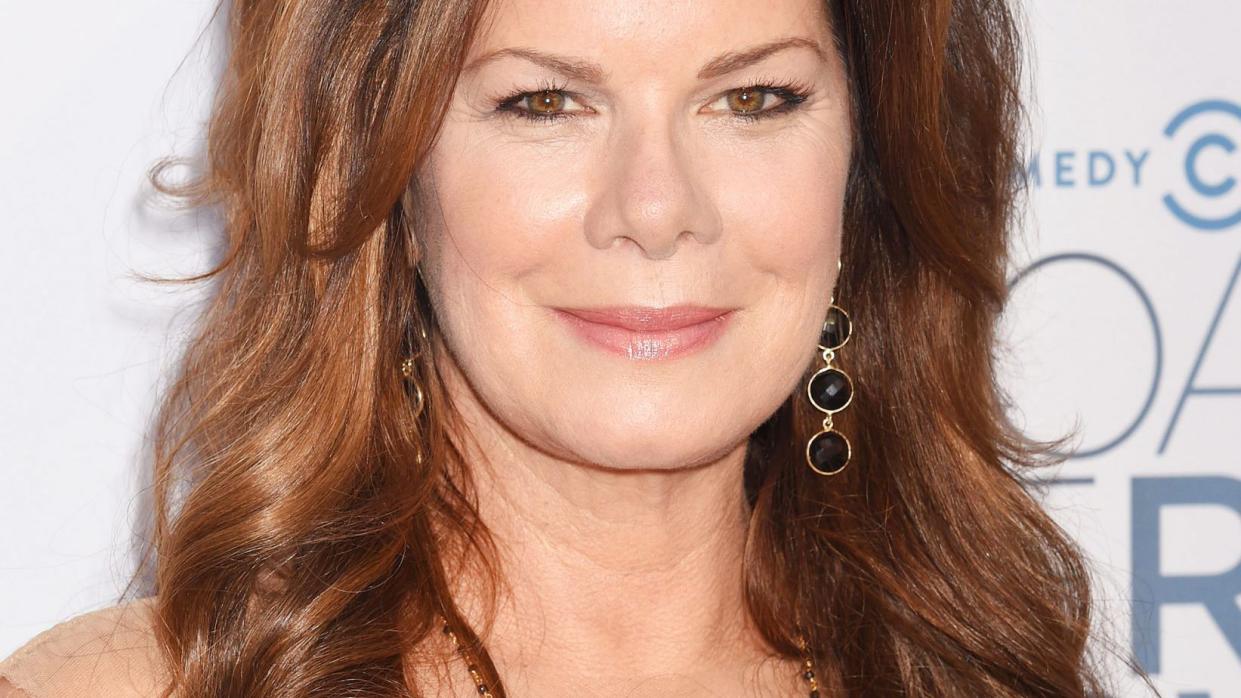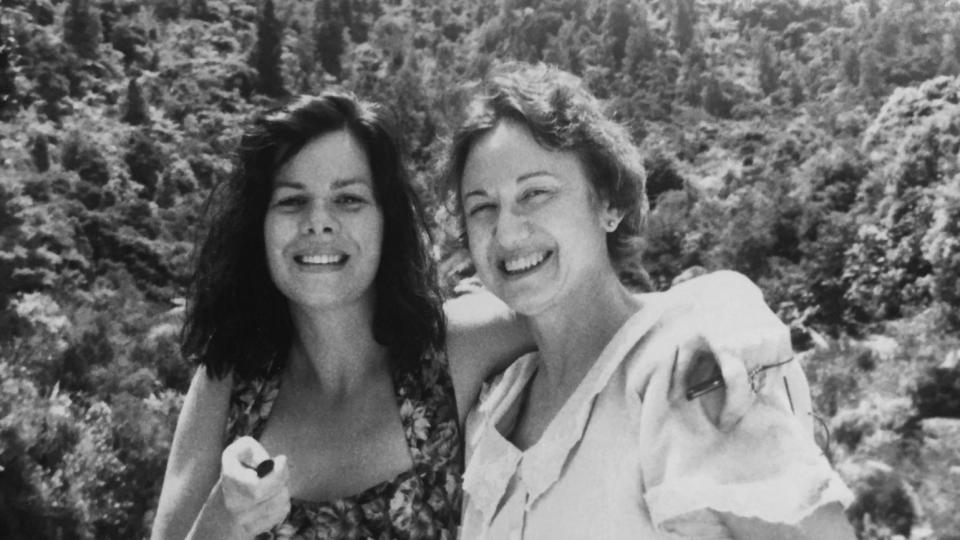Marcia Gay Harden on How Her Mother's Alzheimer's Diagnosis Changed Her Life

Jeffrey Mayer/WireImage
In 2009, Academy Award-winning actress Marcia Gay Harden learned that her 72-year-old mother, Beverly, was suffering from Alzheimer's disease. Here, Harden opens up about how the life-changing diagnosis impacted her family and explains why she's teamed up with Biogen for the Notes to Remember campaign, which aims to raise awareness for the early signs and symptoms of Alzheimer's.
Until my mother was diagnosed, I had no family history of Alzheimer's. No grandparents, aunts, uncles, or other relatives—no one. My awareness was vague, and I thought, "That happens to other people—not to people in my family."
But about 10 years ago, my mother began saying "I think something's wrong." It was probably one of her greatest fears to have Alzheimer's. She would say, "If anything happens to me, I would rather it have it be my body than my mind." We dismissed it as signs of aging, because Alzheimer's happens to other people—not to people you know. As far as I was concerned, it was just a statistic.
Then, she started forgetting tasks that should be quite familiar. She would forget her passport—we were going on a press junket for Into the Wild, and she forgot her passport maybe seven times within the space of about 30 minutes. It raised a few alarm bells, but it was easy to dismiss. Who doesn't forget where they put their passport sometimes? But then while we were in California during that same press junket, mom and I had talked about two dresses that she brought to wear: a red one wear to the premiere, and a yellow one to wear for an event beforehand. They were very different dresses for very different occasions. At the hotel, I asked my mom to run down the hallway and get the yellow dress. But she came back wearing the red dress for the premiere. At that moment, it sort of dropped for me. My hair and makeup guys were in the room with me, and when I looked up at them, they both just had tears in their eyes. They knew something was wrong, too.
That was about three years before mom got diagnosed. It was a very confusing time. She was scared, as anyone would be. When she finally got her diagnosis, I think she was absolutely surrounded by fear. But when it comes to health, knowledge is power—even when it's scary. I wanted mom to take charge and give instructions and be clear about what she wanted for the future, because it's very difficult when it's left to children to make these decisions for a parent or loved one. Not everyone has the same opinions about what should happen to their parents, and all opinions are valid. It's important to take control while cognizant and make sure you have your ducks in a row. You can decide how you want to live and spend time with the people you love. You want to write down family history and make sure that your great-grandmother's painting will be passed down and the kids know what it is and where it's from. It's important to know the history of precious heirlooms—that's something that my mother would say, because she came from the Dallas world of beautiful antiques and china.

Marcia Gay Harden
My mother was an elegant Dallas lady. We traveled all over the world because my father was in the military, and when we moved to Japan, mom fell in love with Ikebana, the Japanese art of flower arranging. She became a master of the title, and as we continued our travels around the world, mom brought this love of Ikebana with her. She joined various garden clubs and Ikebana groups all around America; she hosted Japanese dignitaries and professionals of Ikebana; and she became the leader of the entire American Association of Ikebana when we lived in Washington, D.C. Arranging flowers and gardening were always a part of her life. It's an art, and my mother was an artist. She was a gentle lady, a loyal lady, a dignified lady. She was literally my best friend—all of the kids would claim the same. She traveled a lot with me, so we had adventures. I miss that.
Taking care of mom is a job that we love. I'm there for her in every way I can be, and I try to be creative in ways to communicate with her. All she can be is in the moment. Like anyone with Alzheimer's, she doesn't remember the past, and she doesn't imagine the future. There is just a moment. But I've discovered something about the spirit in that it is undefeatable. It is omnipresent. My mother's spirit is very kind and gentle, and that spirit is still there. She's very wry, and she hasn't suddenly become someone who listens to punk rock out of the blue. She still loves jazz, nature, and a beautiful home. I'm writing a book about the time before mom was diagnosed and the beauty of her Ikebana and how she was before. Because she can't remember for herself, I can remember for her.
I think anyone who has a loved one suffering from Alzheimer's really wants their legacy to be the person that they were previous to the disease. My mother was literally the poster child for someone who was everything that is not Alzheimer's—she was physically healthy and ate well. It feels so random and so senseless. Her disease has made me aware of trying to be proactive for my own future. I used to put things off until "tomorrow," because life is busy there's not always time to cross all the t's and dot all the i's. But with the gift of time, there are many things a person can choose to do. I try to be proactive with my kids, talking to them about Alzheimer's and making plans for my own life that have to do with my children and our future. I've been trying to set things up for them, and I did it when they were quite young.
VIDEO: Selena Gomez Donates to Lupus Research
I think we all worry about Alzheimer's, but I think you always have to try to have a sense of humor. My mother has kept hers, and I try to make her laugh. I also laugh at myself at times. I laugh at my own fear and understand where it comes from. I try not to over-analyze when I forget something—because everybody forgets things. There are times when I go, "Wow, that was scary." But everybody gets over-stretched sometimes, and it's easy to forget where you put your keys when your hard drive is full. When it's repetitive, that's when you want to sit up and take notes—like when you're forgetting the names of things that you're quite familiar with or the recipes or directions to things that you know quite well.
Raising awareness for the early signs is so important, and that's why I wanted to partner with Biogen on the Notes to Remember campaign. I'm very passionate about it, because it really does appeal to the early moments that are so easy to dismiss. It's the time there's the most confusion, and families are not equipped to understand it. I'm trying to be a part of the change and make a difference, rather than just accepting it and feeling helpless. It's a terrible thing to feel helpless. You can stand on the corner and feel like you're looking into the abyss, and that's not wrong. But it is with awareness and bravery that we go there, and then a thousand and one other doors open up. We're part of the solution, not part of the fear.
As told to Samantha Simon

